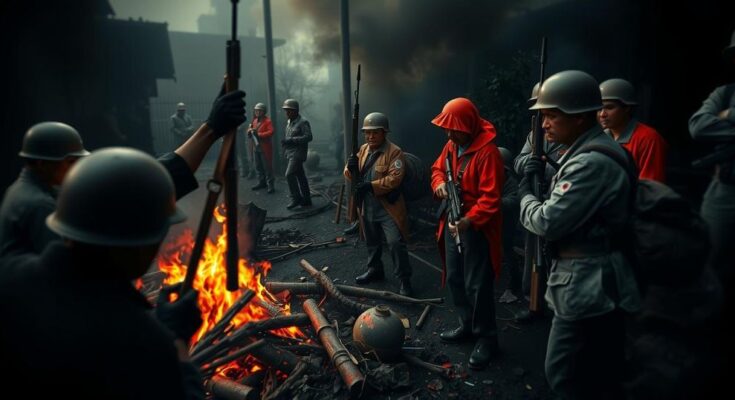Researchers from KITLV, NIMH, and NIOD reveal that during Indonesia’s struggle for independence between 1945 and 1949, Dutch soldiers engaged in widespread violence, including extrajudicial killings, murder, and torture, which was tacitly accepted by the Dutch government. Jeffry Pondaag commented on the need for the Netherlands to acknowledge its role in these atrocities, emphasizing that the findings reflect a long-standing issue of colonial violence and accountability.
Recent research highlights that the Dutch military tolerated widespread violence during Indonesia’s struggle for independence from 1945 to 1949. A consortium study by The Royal Netherlands Institute of Southeast Asian and Caribbean Studies (KITLV), the Netherlands Institute of Military History (NIMH), and the Institute of War, Holocaust, and Genocide (NIOD) reveals systemic abuses including extrajudicial executions, murder, rape, and torture committed by Dutch soldiers. The researchers emphasize that the violence was not only widespread but also sanctioned by the Dutch government, which neglected to conduct thorough investigations into these crimes. Critiques of the impunity surrounding those involved stress that the violence stemmed from colonial oppression, racism, and exploitation. Jeffry Pondaag of the Committee of Dutch Honorary Debts commented that these findings, although not surprising, necessitate the Netherlands’ public acknowledgment of its responsibility in the matter.
The historical context of Indonesia’s fight for independence began on August 17, 1945, when it declared independence from the Dutch Empire. Despite this declaration, the Netherlands did not recognize Indonesia’s independence and deployed troops to Java and Sumatra to enforce colonial rule. This led to a violent conflict marked by numerous atrocities against the Indonesian civilian population, culminating in a peace treaty that acknowledged Indonesia’s sovereignty on December 27, 1949. The systematic violence by Dutch troops forms a significant aspect of this conflict, encapsulating the complex legacy of colonialism in Indonesia.
The findings from this thorough research underscore the egregious violations of human rights during Indonesia’s fight for independence, perpetuated by the Dutch military with governmental complicity. The acknowledgment of such historical injustices is crucial for fostering accountability and reconciliation. Without an explicit admission and responsibility taken by the Netherlands, the conversation about colonial legacies and their consequences remains incomplete. Such discussions are essential in addressing the broader specter of colonial violence across different contexts.
Original Source: www.aa.com.tr




